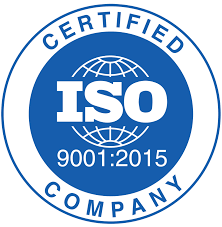Developments in software technology have been always dynamic. New languages like C++ Programming and new techniques like oops concepts are announced everyday; as a result, engineers and software industries need to track the new changes to continue the development. However, there are many programming languages, but the Object-Oriented Programming Language is the most preferred one in the software industry. It offers the user a new approach to build the real-time application along with a way to cope the complexity of other programs. Among the oops languages available, C++ Programming is the most widely used one. Moreover, it is the most versatile language used for handling very large programs and suitable for programming task including development of compilers, editors and any real-time complications The ability to map the real life problems, makes C++ programming the most popular and the most important course for the software industry. It would be indeed to say that there are many colleges and institutes, which give training of this course to students. Among the institutes available, Oops Info Solutions Chandigarh is one among them offering this course for a term of 2 months. Oops Info Solutions has extensive experience trainers to guide the students for real-time projects. Apart from the course, it also assures the enrolled students for 100% placement opportunity. Most of the times, the seats are booked in advance.
C++ Programming Syllabus
What is C++?
Why C++?
C and C++
Exception Handling
Inheritance
Object Oriented Programming
Standard Template Library
Types and Declarations
Types
Booleans
Integer Types
Floating-Point Types
Sizes
Void
Enumerations
Declarations
Pointers, Arrays and Structures
Pointers
Arrays
Pointers into Arrays
Constants
References
Pointers to void
Structures
Expressions and Statements
A Deck Calculator
Operator Summary
Statement Summary
Comments and Indentation
Functions
Function Declarations
Argument Passing
Value Return
Overloaded Function Names
Default Arguments
Pointer to Function
Macros
Namespaces and Exceptions
Namespaces
Exception
Source Files and Programs
Separate Compilation
Linkage
Using Header FIles
Programs
Classes
Classes
Access Control
Constructors
Member functions
Static members
Destructors
Memory allocation
Member initialization
Operator Overloading
Introduction
Operator Functions
A Complete Number Type
Conversion Operators
Friends
Large Objects
Essential Operators
Subscripting
Function Calls
Dereferencing
Increment and Decrement
A String Class
Derived Class
Introduction
Derived Classes
Abstract Classes
Design of Class Hierarchies
Class Hierarchies and Abstract Classes


